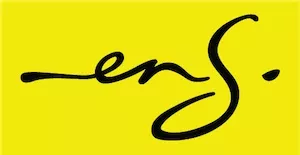On 20 December 2023, the UK Supreme Court handed down its judgment in what is generally referred to as the DABUS case – DABUS being an acronym for something that really is something of a mouthful, Device for Autonomous Bootstrapping of Unified Sentience.
The UK case was seemingly part of a global test litigation strategy that was aimed at determining the limits of Artificial Intelligence ("AI") ownership of patents in major jurisdictions. The legal issue was this: must the inventor of the patent be a natural person?
But before we get to the Supreme Court, let's start a bit lower down. At the UK Intellectual Property Office ("UKIPO").
UK-IPO's judgment
UKIPO refused the application by one Dr Stephen Thaler to register two patents in the UK for inventions that were created by Thaler's AI system, the so-called 'creativity machine' that goes by the name of DABUS. The ground for the refusal went something like this – for the purposes of UK patent law the inventor must be a natural person, but in this case the inventor is a machine and not a natural person.
But Thaler was undeterred, following UKIPO's refusal. He took his case to the High Court where he lost, he then took it to the Court of Appeal where he lost again, and finally, took it to the highest court in the land, the Supreme Court.
The Supreme Court's judgment
Unfortunately for Thaler, the Supreme Court agreed with the lower courts and held that DABUS is not a natural person, which meant that in law, it could not devise an invention. DABUS was, in other words, not an invention in terms of the UK Patents Act. We could conclude this article here, but think it necessary to delve into an examination of the judgment detail.
Ownership of DABUS
An issue that arose was whether Thaler was entitled to apply for a patent for technical advances made by DABUS by virtue of his ownership of DABUS. The Supreme Court was quite clear on this, Section 7 does not confer the right to obtain a patent "for any new product or process created or generated by a machine, such as DABUS, let alone a person who claims the right purely on the basis of ownership of the machine."
The court also rejected an argument based on the principle of accession, namely that any inventions of DABUS were "fruits" of the machine owned by Thaler, inter alia, on the grounds that accession only applies to tangible property produced by tangible property.
The Supreme Court described Thaler's reliance on DABUS being the inventor as "flawed and legally impossible".
Some quotes from the Supreme Court's judgment
Lord Kitchin said this of the appeal: "This appeal is not concerned with the broader question whether technical advances generated by machines acting autonomously and powered by AI should be patentable."
The judge went on to say this: "Nor is it concerned with the question whether the meaning of the term ''inventor' " ought to be expanded... to include machines powered by AI which generate new and non-obvious products and processes which may be thought to offer benefits over products and processes which are already known."
Thaler's response to the judgment
Thaler's lawyers have said that the Supreme Court's judgment has "established that UK patent law is currently wholly unsuitable for protecting inventions generated autonomously by AI machines."
The legal profession's response
Giles Parsons of the law firm Browne Jacobson is quoted as saying this about the judgment, "This decision will not, at the moment, have a significant effect on the patent system... that's because, for the time being, AI is a tool not an agent... I do expect that will change in the medium term, but we can deal with that problem as it arises."
The firm Osborne Clark has suggested that "if DABUS had been framed as a ''sophisticated' " tool used by Dr. Thaler to assist him to create the invention then the outcome might have been different.'
What if Thaler had described himself as the inventor?
An interesting issue that has been raised is whether Thaler could have done this differently, by listing himself as the inventor and DABUS as a mere tool. But, as the court said, it "never has been Dr Thaler's case that he was the inventor and used DABUS as a highly sophisticated tool. Had he done so, the outcome of these proceedings might well have been different."
DABUS elsewhere
It's worth noting that Thaler also failed in the USA, where the Supreme Court refused to hear a challenge to the United States Patent and Trademark Office's refusal to issue patents for inventions created by Thaler's AI system.
General consensus
The view that AI cannot be listed as an inventor is not unique to the UK, as it has apparently also been adopted in the USA, the European Patent Office ("EPO") and the German Federal Patent Court.
The content of this article is intended to provide a general guide to the subject matter. Specialist advice should be sought about your specific circumstances.

